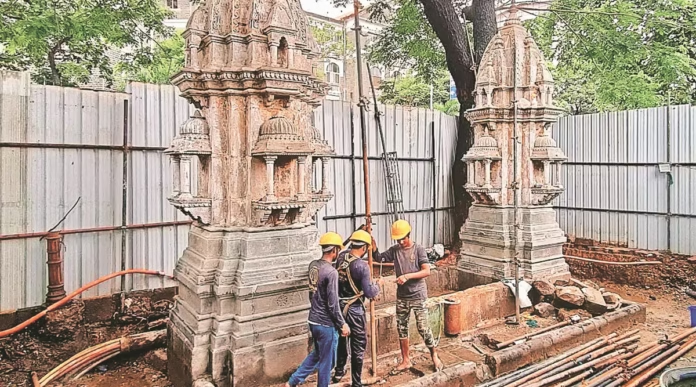Mumbai’s rich architectural and cultural heritage is set to receive a boost as the Brihanmumbai Municipal Corporation (BMC) announces plans to restore 16 historic drinking water fountains, known locally as pyaus, by next year. These fountains, built during the 19th and early 20th centuries, were once key sources of water for both people and animals in a rapidly developing Mumbai. Funded by philanthropists and merchants, these structures were often constructed as charitable donations or to honour loved ones.
Pyaus, with their continuous spouts of water, offered a vital public resource at a time when modern plumbing systems were absent. Unlike contemporary taps and filters, these fountains catered to the needs of both humans and animals. Situated in busy areas such as marketplaces, they were integral to daily life in Mumbai, especially before the introduction of modern water supply systems. The restoration project highlights the significance of Mumbai’s pyaus, reflecting both the city’s rich cultural history and its varied architectural styles. These structures were primarily made from regional materials such as limestone, basalt, and malad, giving each pyau a unique aesthetic. Their restoration will not only preserve the city’s heritage but also contribute to the revival of public spaces. The BMC’s restoration efforts began in 2018, following a heritage conservation firm’s proposal to create a heritage circuit involving 21 pyaus. Already, four pyaus within the Veermata Jijabai Bhosale Udyan (Ranibaug) have been restored to functioning water filters, and another was renovated in Shivaji Park.
Now, the civic body has turned its attention to restoring 16 more pyaus at iconic locations such as Hay Bunder, Dadar, and Sandhurst Road, with a majority situated in South Mumbai. Only one of the fountains is located in the suburbs, at Bandra. As part of the restoration, BMC plans to install QR codes on each pyau, allowing visitors to learn about the historical significance of the structures. The tender process for the project will begin next year, with contractor selection expected in the next month. Restoration work is expected to commence before the end of this year, contributing to the ongoing preservation of Mumbai’s heritage. An additional stand-alone project will also focus on the Sandhurst Road pyau. Originally renovated in 2015-16, this structure had fallen into neglect and ceased functioning. The new restoration will ensure that the pyau is properly maintained to prevent further deterioration. The decline of Mumbai’s pyaus began in the 1960s when the city introduced a metered water supply, limiting their ability to offer a constant flow of water. The shift from horse-drawn carts to automobiles further reduced the demand for these fountains, as they were no longer required by both humans and animals.



